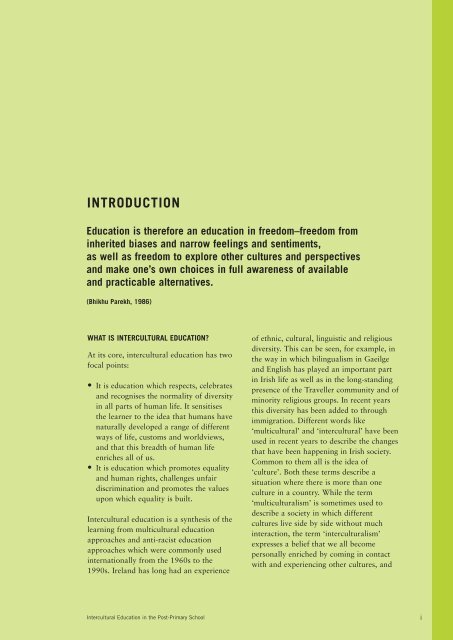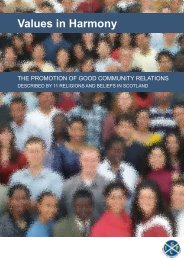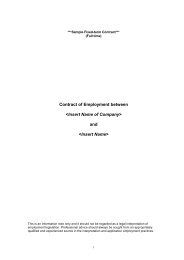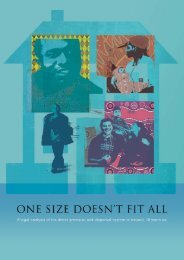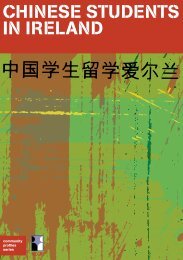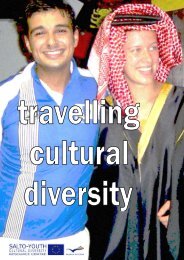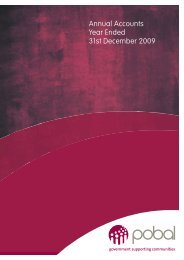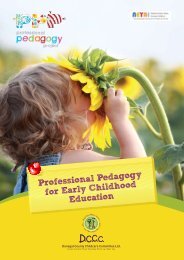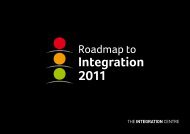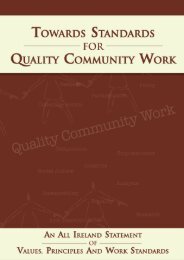Intercultural Education in the Post-Primary School - National Council ...
Intercultural Education in the Post-Primary School - National Council ...
Intercultural Education in the Post-Primary School - National Council ...
Create successful ePaper yourself
Turn your PDF publications into a flip-book with our unique Google optimized e-Paper software.
INTRODUCTION<strong>Education</strong> is <strong>the</strong>refore an education <strong>in</strong> freedom–freedom from<strong>in</strong>herited biases and narrow feel<strong>in</strong>gs and sentiments,as well as freedom to explore o<strong>the</strong>r cultures and perspectivesand make one’s own choices <strong>in</strong> full awareness of availableand practicable alternatives.(Bhikhu Parekh, 1986)WHAT IS INTERCULTURAL EDUCATION?At its core, <strong>in</strong>tercultural education has twofocal po<strong>in</strong>ts:• It is education which respects, celebratesand recognises <strong>the</strong> normality of diversity<strong>in</strong> all parts of human life. It sensitises<strong>the</strong> learner to <strong>the</strong> idea that humans havenaturally developed a range of differentways of life, customs and worldviews,and that this breadth of human lifeenriches all of us.• It is education which promotes equalityand human rights, challenges unfairdiscrim<strong>in</strong>ation and promotes <strong>the</strong> valuesupon which equality is built.<strong>Intercultural</strong> education is a syn<strong>the</strong>sis of <strong>the</strong>learn<strong>in</strong>g from multicultural educationapproaches and anti-racist educationapproaches which were commonly used<strong>in</strong>ternationally from <strong>the</strong> 1960s to <strong>the</strong>1990s. Ireland has long had an experienceof ethnic, cultural, l<strong>in</strong>guistic and religiousdiversity. This can be seen, for example, <strong>in</strong><strong>the</strong> way <strong>in</strong> which bil<strong>in</strong>gualism <strong>in</strong> Gaeilgeand English has played an important part<strong>in</strong> Irish life as well as <strong>in</strong> <strong>the</strong> long-stand<strong>in</strong>gpresence of <strong>the</strong> Traveller community and ofm<strong>in</strong>ority religious groups. In recent yearsthis diversity has been added to throughimmigration. Different words like‘multicultural’ and ‘<strong>in</strong>tercultural’ have beenused <strong>in</strong> recent years to describe <strong>the</strong> changesthat have been happen<strong>in</strong>g <strong>in</strong> Irish society.Common to <strong>the</strong>m all is <strong>the</strong> idea of‘culture’. Both <strong>the</strong>se terms describe asituation where <strong>the</strong>re is more than oneculture <strong>in</strong> a country. While <strong>the</strong> term‘multiculturalism’ is sometimes used todescribe a society <strong>in</strong> which differentcultures live side by side without much<strong>in</strong>teraction, <strong>the</strong> term ‘<strong>in</strong>terculturalism’expresses a belief that we all becomepersonally enriched by com<strong>in</strong>g <strong>in</strong> contactwith and experienc<strong>in</strong>g o<strong>the</strong>r cultures, and<strong>Intercultural</strong> <strong>Education</strong> <strong>in</strong> <strong>the</strong> <strong>Post</strong>-<strong>Primary</strong> <strong>School</strong>i


